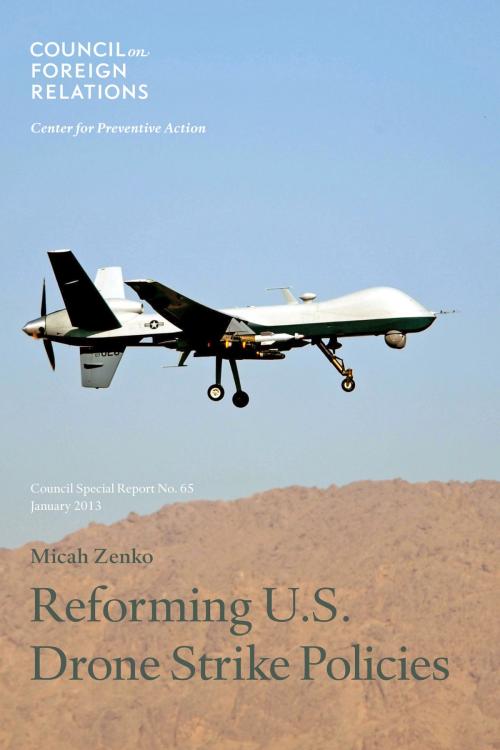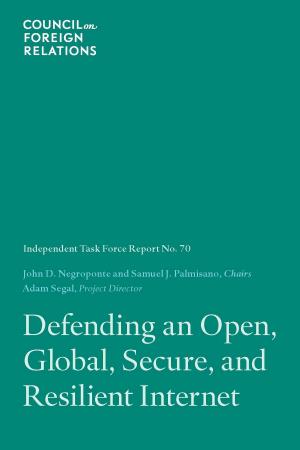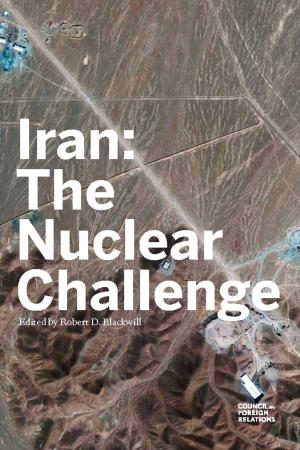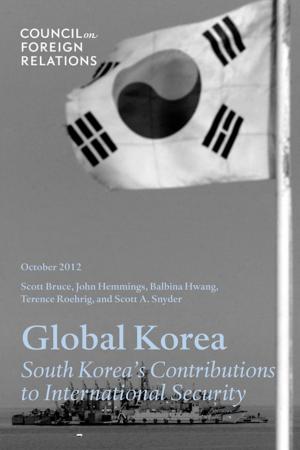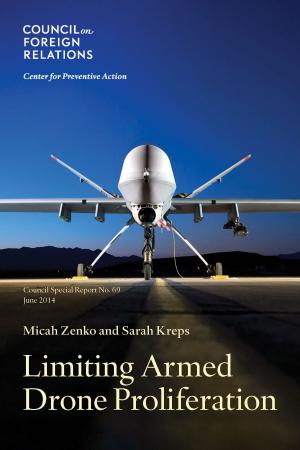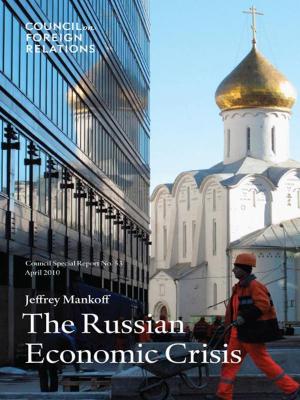Reforming U.S. Drone Strike Policies
Nonfiction, Social & Cultural Studies, Political Science, International, International Relations| Author: | Micah Zenko | ISBN: | 9780876095454 |
| Publisher: | Council on Foreign Relations | Publication: | January 1, 2013 |
| Imprint: | Council on Foreign Relations Press | Language: | English |
| Author: | Micah Zenko |
| ISBN: | 9780876095454 |
| Publisher: | Council on Foreign Relations |
| Publication: | January 1, 2013 |
| Imprint: | Council on Foreign Relations Press |
| Language: | English |
Over the last ten years, drones have become a critical tool in the war against terrorist and militant organizations worldwide. Their advantages over other weapons and intelligence systems are well known. They can silently observe an individual, group, or location for hours on end, but take immediate action should a strike opportunity become available--all without putting a pilot at risk. This combination of capabilities is unique and has allowed the United States to decimate the leadership of al-Qaeda in Afghanistan and disrupt the activities of many other militant groups.Yet, as Micah Zenko writes in this Council Special Report, drones are not without their drawbacks, especially with regard to targeted killings. Like any tool, drones are only as useful as the information guiding them, and for this they are heavily reliant on local military and intelligence cooperation. More important, significant questions exist about who constitutes a legitimate target and under what circumstances it is acceptable to strike. There is also the question of net utility: To what extent are the specific benefits derived from drone strikes offset by the reality that the strikes often alienate the local government and population? And there is the reality that drones are proliferating but, as is often the case with new technologies, the international legal and regulatory framework is lagging behind.Zenko puts forward a substantive agenda. He argues that the United States should end so-called signature strikes, which target unidentified militants based on their behavior patterns and personal networks, and limit targeted killings to a limited number of specific terrorists with transnational ambitions. He also calls Congress to improve its oversight of drone strikes and to continue restrictions on armed drone sales. Finally, he recommends that the United States work internationally to establish rules and norms governing the use of drones.
Over the last ten years, drones have become a critical tool in the war against terrorist and militant organizations worldwide. Their advantages over other weapons and intelligence systems are well known. They can silently observe an individual, group, or location for hours on end, but take immediate action should a strike opportunity become available--all without putting a pilot at risk. This combination of capabilities is unique and has allowed the United States to decimate the leadership of al-Qaeda in Afghanistan and disrupt the activities of many other militant groups.Yet, as Micah Zenko writes in this Council Special Report, drones are not without their drawbacks, especially with regard to targeted killings. Like any tool, drones are only as useful as the information guiding them, and for this they are heavily reliant on local military and intelligence cooperation. More important, significant questions exist about who constitutes a legitimate target and under what circumstances it is acceptable to strike. There is also the question of net utility: To what extent are the specific benefits derived from drone strikes offset by the reality that the strikes often alienate the local government and population? And there is the reality that drones are proliferating but, as is often the case with new technologies, the international legal and regulatory framework is lagging behind.Zenko puts forward a substantive agenda. He argues that the United States should end so-called signature strikes, which target unidentified militants based on their behavior patterns and personal networks, and limit targeted killings to a limited number of specific terrorists with transnational ambitions. He also calls Congress to improve its oversight of drone strikes and to continue restrictions on armed drone sales. Finally, he recommends that the United States work internationally to establish rules and norms governing the use of drones.
